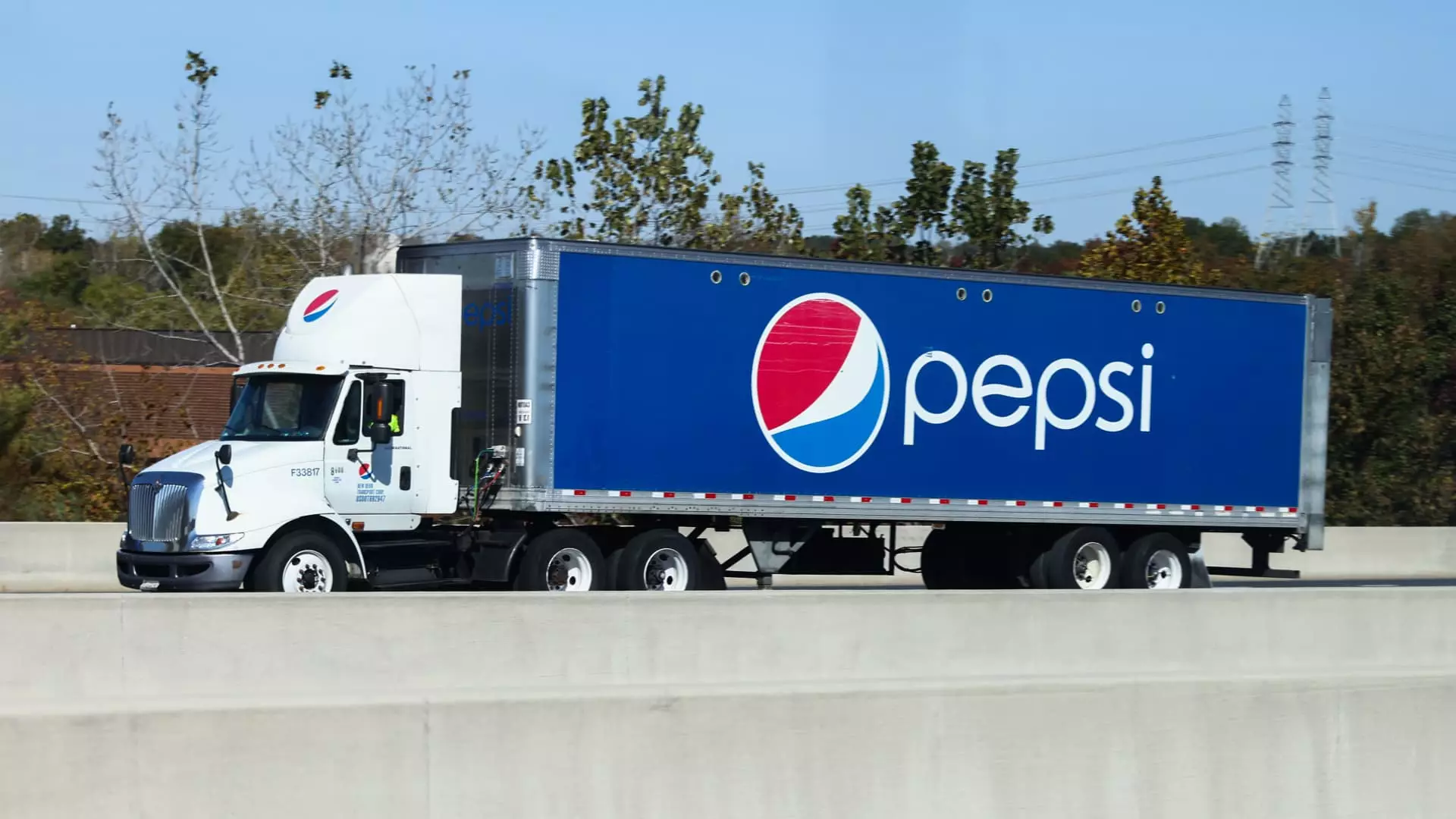In a significant move that signals challenges ahead, PepsiCo has adjusted its full-year forecast for organic revenue following two consecutive quarters of disappointing sales figures. This decision reflects the company’s struggle to maintain momentum amidst a myriad of external factors, including product recalls, shifting consumer preferences, and uneven international market performance. CEO Ramon Laguarta has emphasized the repercussions of these issues in a statement that sheds light on the company’s current landscape.
Financial Performance: A Closer Look
PepsiCo’s latest earnings report revealed a complex picture, highlighting both losses and slight gains. The company’s adjusted earnings per share (EPS) stood at $2.31, surpassing analyst expectations of $2.29. However, revenue came in at $23.32 billion, falling short of the anticipated $23.76 billion. This discrepancy underscores the challenges PepsiCo faces in converting sales into profit in a competitive environment.
Moreover, the net income attributable to the company dropped to $2.93 billion, a decrease from the previous year’s $3.09 billion. The breakdown of these figures is alarming for investors, particularly as net sales saw a slight decline of 0.6%. While organic revenue posted a modest rise of 1.3%, the overall decline in volume across both food and beverage segments – down by 2% each – signifies a troubling trend.
One of the most pressing issues for PepsiCo has been the impact of recalls within its Quaker Foods North America division. The company faced challenges starting in December with the first recall related to potential salmonella contamination. This has evidently affected consumer trust and purchasing decisions, contributing to a staggering 13% drop in volume specific to Quaker Foods. Furthermore, the company confirmed the closure of a plant linked to these recalls, though operations had already ceased prior to this decision.
According to Laguarta and CFO Jamie Caulfield, the lingering effects of these recalls appear to be subsiding. However, it is crucial to consider how lasting damage may have been inflicted on the brand image and consumer confidence during this tumultuous period.
The company’s performance has not just been marred by recalls but also by a noticeable shift in consumer behavior. Executives have reported a trend where shoppers across all income brackets are altering their purchasing habits, likely influenced by broader economic pressures and changing lifestyles. This reality has manifested in a decline in volume for its flagship brands, including Frito-Lay, which recorded a 1.5% decrease in volume despite efforts to enhance in-store availability and value offerings for products like Cheetos and SunChips.
The overall snack food category, previously a stronghold for the company, appears to be losing traction. Executives noted that salty and savory snacks have underperformed relative to historical standards, marking a significant shift in consumer preferences that Pepsi must adapt to in the coming years.
PepsiCo’s struggles are not confined to the U.S.; international markets such as Latin America and regions like the Middle East and South Asia also reported volume shrinkage across both food and beverage sectors. This widespread decline signals that the challenges Pepsi faces are not solely domestic but rather indicative of a larger trend affecting the global snack and beverage industry.
Looking ahead to 2024, the company’s expectations for organic revenue growth have been revised downward to a low-single-digit rise, a significant drop from the earlier projected 4%. While PepsiCo maintains its forecast for a minimum increase of 8% in core constant currency earnings per share, there is a palpable sense of uncertainty looming over the company’s future.
PepsiCo finds itself at a crossroads, grappling with declining sales figures, the repercussions of product recalls, and the necessity to adapt to shifting consumer demands. As the company seeks to regain its footing, stakeholders and onlookers will closely monitor how effective its strategic response will be in overcoming these challenges. The coming quarters will be pivotal in determining whether PepsiCo can turn the tide and reposition itself as a powerhouse within the competitive landscape of the food and beverage industry.

Leave a Reply